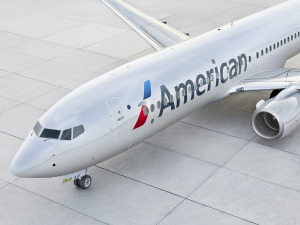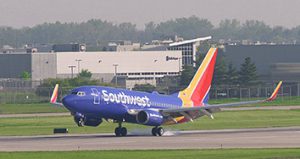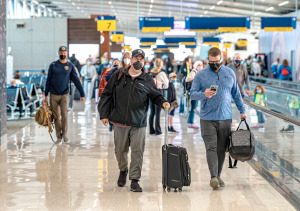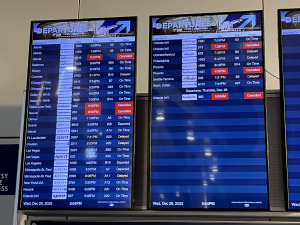
United plans to hire 15,000, adding to surge in airline jobs
Airlines are trying to avoid a rerun of last year, when they were caught unprepared for a rapid recovery in air travel.

Airlines are trying to avoid a rerun of last year, when they were caught unprepared for a rapid recovery in air travel.

American, Southwest and United Airlines are under pressure to match or beat terms that rival Delta Air Lines accepted with its pilots.
U.S. airline passenger levels this summer are projected to be “comfortably above” pre-pandemic numbers, the head of the Transportation Security Administration said.

Southwest Airlines said an “intermittent technology issue” led to more than 1,700 flight delays Tuesday morning.

The Justice Department said the $3.8 billion acquisition would hurt cost-conscious travelers who depend on Spirit to find cheaper options than they can find on JetBlue and other airlines.

Senators who want to impose tougher penalties when airlines strand or delay passengers say they finally might be able to turn their ideas into law because of outrage over debacles like the one at Southwest Airlines in December.

About 4,700 flights were delayed nationwide. Southwest scrubbed more than 500 flights, or about 12% of its entire schedule, while American dropped about 200 flights.

The report from United comes on the heels of upbeat comments by its closest rivals, Delta Air Lines and American Airlines. Officials with all three carriers say that consumers are still booking travel despite concern about the economy.
As the nation’s airspace recovered Thursday, attention turned to the complicated patchwork of old technology and modern additions that make up the aging safety system.

Delays and cancellations among flights across the United States were minimal on Thursday, a day after a system that offers safety information to pilots failed, grounding U.S. air traffic and leading to thousands of stranded travelers.
The failure of a key federal safety system Wednesday led to widespread disruptions in domestic air travel for the second time in two weeks, prompting a fresh round of scrutiny from lawmakers amid continued breakdowns in technology.

The FAA ordered all departing flights grounded early Wednesday morning, but lifted that order just before 9 a.m. Eastern after several hours.
Now the question is what should be done to punish the airline and what can prevent such a catastrophe in the future.

With its flights running on a roughly normal schedule, Southwest Airlines is now turning its attention to repairing its damaged reputation after it canceled 15,000 flights around Christmas and left holiday travelers stranded.

Southwest Airlines canceled more than 15,000 flights between Dec. 22 and Dec. 30, according to tracking service FlightAware. The flight disruptions began with a winter storm that swept across the country.

The carrier, which had canceled thousands of flights every day this week after a winter storm last weekend, reported fewer than 40 cancellations early Friday. That was still more than United, American and Delta combined

The 2,359 flights scrubbed by Southwest Airlines on Thursday represents 96 percent of all domestic cancellations.

Southwest Airlines’ overwhelmed technology—a scenario fueled by a punishing winter storm—left it this week facing some of the most difficult days in its half-century history.

Exhausted Southwest Airlines travelers tried finding seats on other airlines or renting cars to get to their destination, but many remained stranded. The airline’s CEO said it could be next week before the flight schedule returns to normal.

More than 3,000 U.S. flights were canceled Tuesday among all carriers, with Southwest accounting for more than 2,600 of the total—a problem the airline blamed partly on tools for tracking and creating employee schedules.